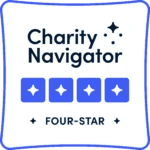Summer Safety: Protecting Our Youth from Online Exploitation
As summer rolls in, bringing with it longer days and more free time, it’s crucial for us to address a pressing concern: the dangers of online child sexual exploitation and abuse. At Ho’ōla Nā Pua, our mission extends beyond providing a safe haven for survivors; we are committed to preventing these atrocities from happening in the first place. That’s why we’re proud to support the #DigitalBoundaries campaign and #Know2Protect initiative, offering free resources to help facilitate open conversations about online safety and recognizing potential risks.
The Importance of #DigitalBoundaries
With summer providing a much-needed break for children and teens, it also brings increased screen time. Parents and trusted adults, it’s vital to set healthy digital boundaries by discussing expectations and encouraging kids to talk to you about any suspicious online behavior. Regular reminders can help instill safe digital habits and protect our youth from potential dangers.
Access The Complete Set of #DigitalBoundaries Resources: https://www.dhs.gov/know2protect/publication/digital-boundaries-content?utm_source=National+Center+for+School+Safety&utm_campaign=06408ddae7-The+Handout+-+July+2024+Week+1&utm_medium=email&utm_term=0_fca28f9325-06408ddae7-614389225
Tips for Tweens and Teens
- Personal Information: Remind them never to post personal information or inappropriate content.
- Sexting: Discuss the risks of sharing intimate images and the permanency of online data.
- Online Predators: Explain the warning signs that characterize online predators.
- Trusted Adults: Encourage them to seek help from a trusted adult or guardian if needed.
- Illegal Activities: Educate them that sharing self-generated intimate images is illegal.
- Cyberbullying: Talk about its implications and how to handle it.
- Privacy Controls: Teach them to set up privacy controls on their devices to avoid predators.
- Reporting Issues: Let them know it’s never too late to get help if they’ve shared inappropriate content.
Tips for Younger Children
- Pop-Ups: Teach them what pop-ups are and why they should never click on them.
- Inappropriate Content: Create steps for them to follow if they see something inappropriate, like telling a parent or trusted adult.
- Online Etiquette: Instill the importance of being respectful online and reporting disrespectful behavior.
- Stranger Danger: Warn them not to trust people they meet online and to report any uncomfortable interactions.
- Personal Information: Ensure they understand the importance of keeping passwords, addresses, and personal information private.
General Tips for Parents and Trusted Adults
- Open Communication: Start an open, two-way conversation with your child about online safety.
- Password Protection: Control access to your child’s app store and gaming downloads.
- Device Limits: Set time and area limits for device use.
- Privacy Settings: Ensure all apps, games, and devices are set to private.
- Location Services: Turn off location data on social media and nonessential apps.
- Data Permanency: Discuss how online data can last a lifetime.
- Behavior Contracts: Create a contract with your child regarding online behavior.
- Friend Lists: Know your child’s friend lists and remove strangers.
- Chat Safety: Warn your child not to leave a game to chat on a different platform with someone they don’t know.
- Evidence Preservation: Advise not to delete any messages or images from predators; save them for law enforcement.
Top 10 Tips for Teens
- Set all apps and devices to private.
- Turn off location services except for family tracking apps.
- Remember, anything posted online can be found later.
- Don’t trust everyone online.
- Only accept friends you know in real life.
- Never leave a game to chat on a different platform.
- Don’t respond to unknown messages.
- Report anything uncomfortable to a trusted adult.
- Save evidence of inappropriate interactions.
- Don’t panic; help is available.
Identifying Safe Adults
Safe adults won’t ask for personal information, share inappropriate images, engage in sexual conversations, or ask to meet in person. If a teen feels uncomfortable or threatened, they should report it immediately to authorities via the Know2Protect Tipline at 833-591-KNOW (5669) or call 911.
Practicing Online Safety
For both tweens and teens, it’s important to practice online safety by setting accounts to private, turning off location features, and being cautious of unknown contacts. Remove strangers from friend lists and never send personal images or participate in inappropriate video calls.
Spotting Fake Profiles
Teens should learn to identify fake profiles by looking for unclear profile pictures, limited activity, inconsistent information, and inappropriate content.
Gaming Safety
Parents should monitor their child’s online gaming interactions, promote safe behavior, review maturity ratings, foster open communication, set boundaries, and use parental controls effectively.
Discussing Sexting
Open discussions about the risks and consequences of sexting are crucial. Emphasize privacy, set clear expectations, teach the risks, and educate about the emotional, social, and legal implications.
At Ho’ōla Nā Pua, we believe that together, we can stop online child exploitation. By setting #DigitalBoundaries and using the resources available through #Know2Protect, we can create a safer digital world for our children and teens.
In service and hope,
Jessica Munoz
Founder, Ho’ōla Nā Pua / Pearl Haven

